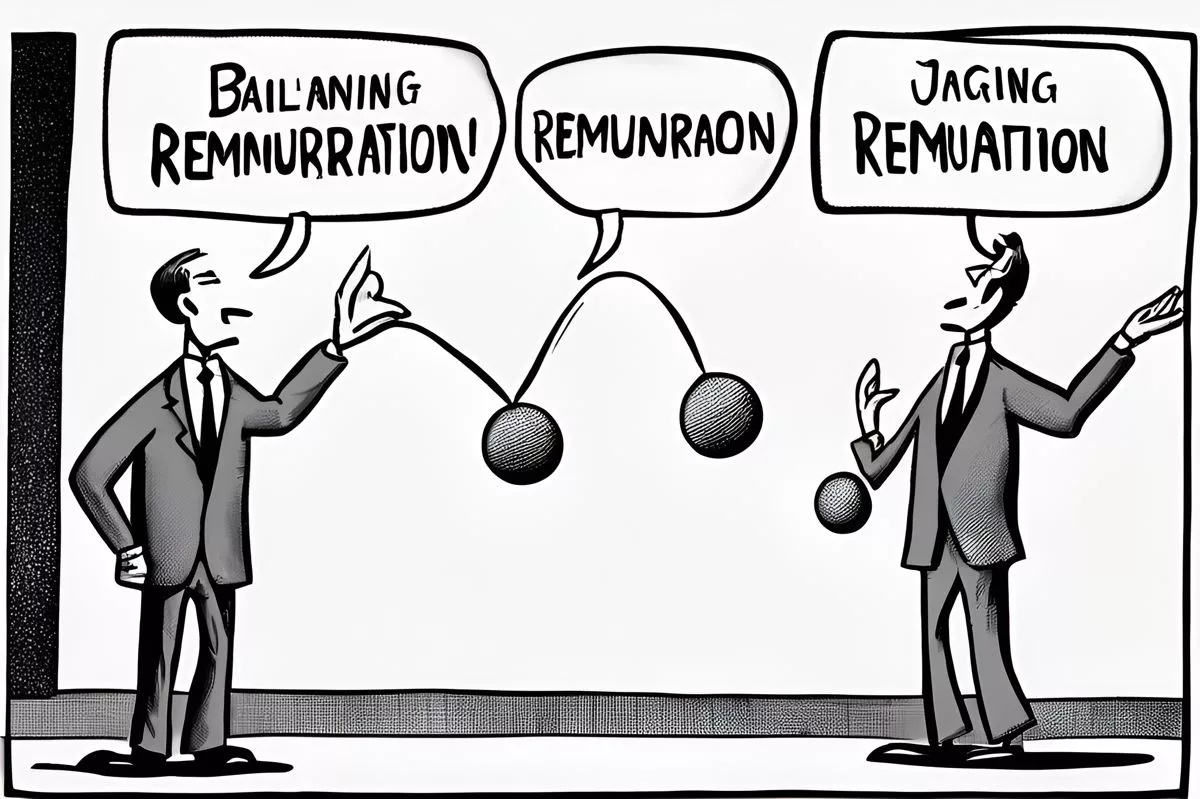The salary of the Auditor-General is decided by the President and approved by the National Assembly, following a cost of living adjustment. A Standing Committee on the Auditor-General examined and endorsed the proposed salary increase for the fiscal years 2023/24 and 2024/25, recognizing the President’s authority and considering it a fair adjustment. This process highlights the importance of maintaining financial responsibility and clarity in government activities and shows the dedication to safeguarding the financial welfare of those who serve our democracy, demonstrating the functioning of a sturdy and financially fair democratic establishment.
Scrutinizing the Compensation Package of the Auditor-General: An In-Depth Analysis
What is the process involved in determining the remuneration for the Auditor-General?
The salary of the Auditor-General is governed by the Determination of Remuneration of Office-Bearers of Independent Constitutional Institutions Laws Amendment Act. The President determines the salary, allowances, and benefits of the Auditor-General, subject to approval by the National Assembly, at regular intervals. In this case, a 3% salary increase was proposed for the fiscal year 2023/2024 and a 2.5% raise for 2024/2025.
The Standing Committee’s Crucial Examination
On a cool, bright Friday, 6th September 2024, inside the respected confines of Parliament, the Standing Committee on the Auditor-General (SCOAG) assembled for a significant mission. The topic on the table was of great consequence – the remuneration of the Auditor-General. After an exhaustive review and discussion on the Draft Notice regarding the Determination of Remuneration for the Auditor-General, the SCOAG provided its endorsement. It proposed that the National Assembly back the President’s decision concerning the 2023/24 and 2024/25 salary of the Auditor-General, a verdict directly tied to a cost of living adjustment.
The Initial Proposal and Legal Background
Earlier during the year, precisely on 9th July, the speaker of the National Assembly, Ms Thoko Didiza, had presented draft notices and schedules detailing the adjustment rate for the Auditor-General’s salary. These modifications were set to be executed from 1st April 2023 and 1st April 2024, respectively, proposed for the fiscal years 2023/24 and 2024/25. This action followed the President’s message to the Speaker, disclosing his decision about the salary and allowances for members of Independent Constitutional Institutions.
It’s important to highlight that the salary of heads of institutions that reinforce democracy is governed by the Determination of Remuneration of Office-Bearers of Independent Constitutional Institutions Laws Amendment Act. Also, Section 7(1) of the Public Audit Act asserts that the Auditor-General is entitled to an annual salary, allowances, or benefits. The President, by issuing a notice in the Gazette subject to approval by the National Assembly, determines these privileges at regular intervals.
In this specific scenario, the President had voiced his intention to determine a 3% salary increase for members of independent constitutional institutions for the fiscal year 2023/2024, and a 2.5% raise for the fiscal year 2024/2025.
Acknowledgement and Analysis
The committee recognized the President’s notice during their gathering, pointing out that the determination of salary, informed by the Independent Commission for the Remuneration of Public Office Bearers and taking into account the advice of the Remuneration Committee, fell within the President’s jurisdiction. The committee understood these proposed increases as representing a cost of living adjustment.
This procedure of salary determination and increment underlines the intricate processes involved in preserving the financial soundness of prominent public office bearers while ensuring their recompense is equitable and proportional to their responsibilities. The role of the Auditor-General, in particular, is crucial in upholding financial responsibility and clarity within government activities. Thus, the thorough contemplation and focus given by SCOAG to this issue demonstrates not just the esteem accorded to the post of Auditor-General but also the dedication to safeguarding the financial welfare of those who serve our democracy.
The Bigger Picture
This episode serves as a testament to the functioning democratic system. It reverberates the significance of continuous conversation, negotiation, and compromise in maintaining a sturdy and financially fair democratic establishment. The decisions made today are not just remuneration adjustments; they are a reaffirmation of the value afforded to public office bearers and their irreplaceable contribution to the democratic fabric of our nation.
-
Who determines the salary of the Auditor-General?
The salary of the Auditor-General is determined by the President, subject to approval by the National Assembly, according to the Determination of Remuneration of Office-Bearers of Independent Constitutional Institutions Laws Amendment Act. -
How often is the Auditor-General’s salary reviewed?
The salary, allowances, and benefits of the Auditor-General are reviewed at regular intervals, with a proposed increase every fiscal year. -
What is the role of the Standing Committee on the Auditor-General?
The Standing Committee on the Auditor-General examines and endorses the proposed salary increase for the Auditor-General, recognizing the President’s authority and ensuring financial responsibility and clarity in government activities. -
What was the proposed salary increase for the Auditor-General?
A 3% salary increase was proposed for the fiscal year 2023/2024, and a 2.5% raise for 2024/2025. -
What legal background governs the salary of the Auditor-General?
The salary of heads of institutions that reinforce democracy is governed by the Determination of Remuneration of Office-Bearers of Independent Constitutional Institutions Laws Amendment Act. Also, Section 7(1) of the Public Audit Act asserts that the Auditor-General is entitled to an annual salary, allowances, or benefits. -
What does this episode demonstrate about the democratic system?
This episode demonstrates the importance of continuous conversation, negotiation, and compromise in maintaining a sturdy and financially fair democratic establishment. The decisions made today are a reaffirmation of the value afforded to public office-bearers and their contribution to the democratic fabric of the nation.










